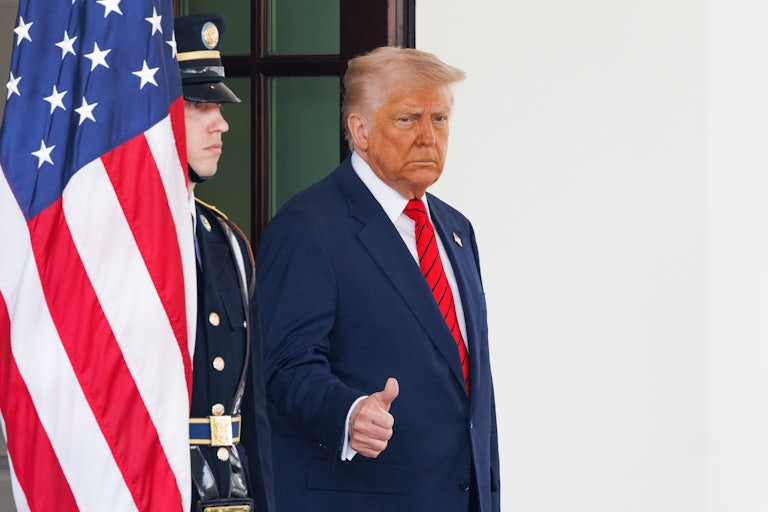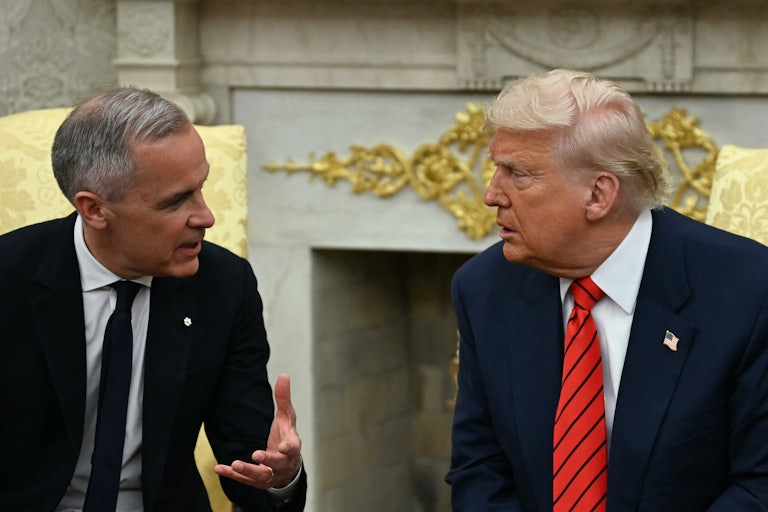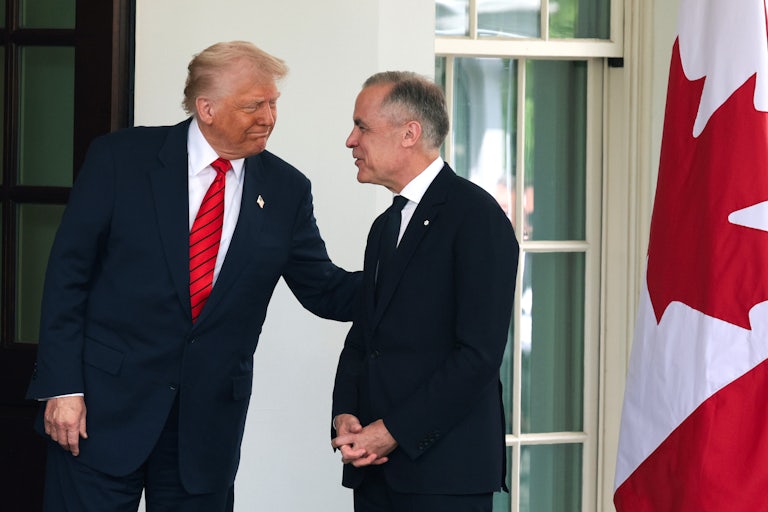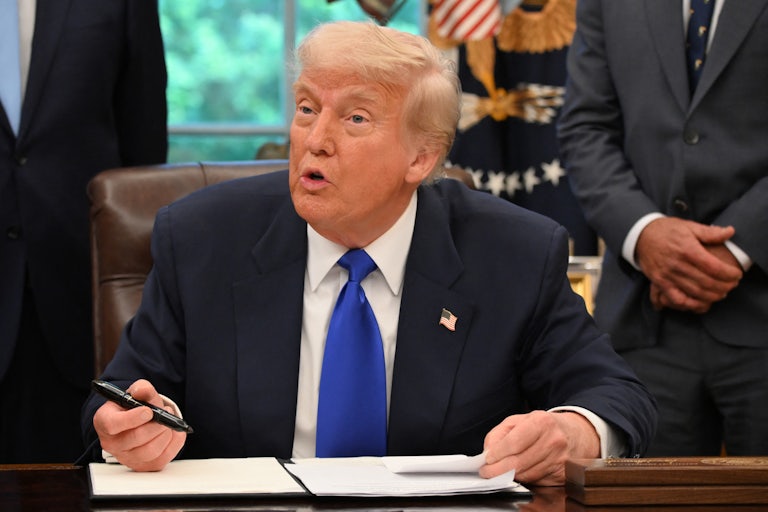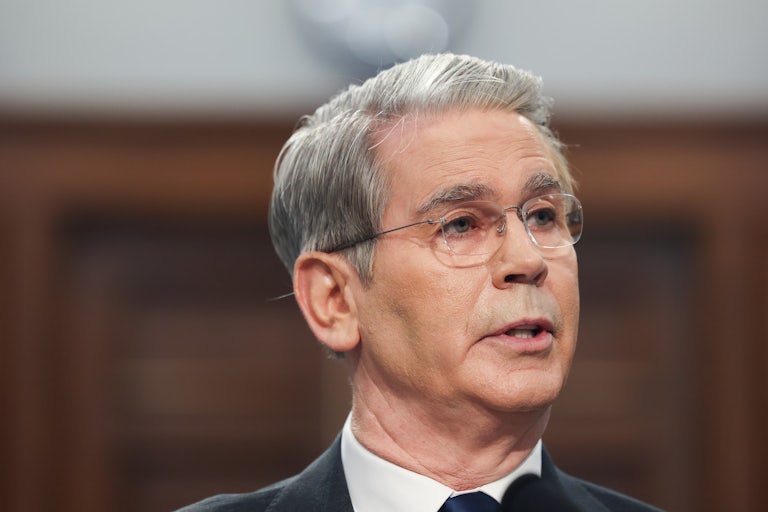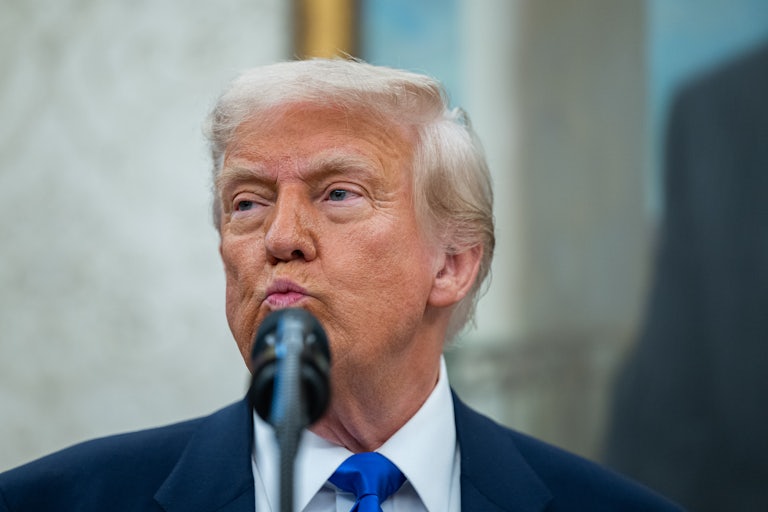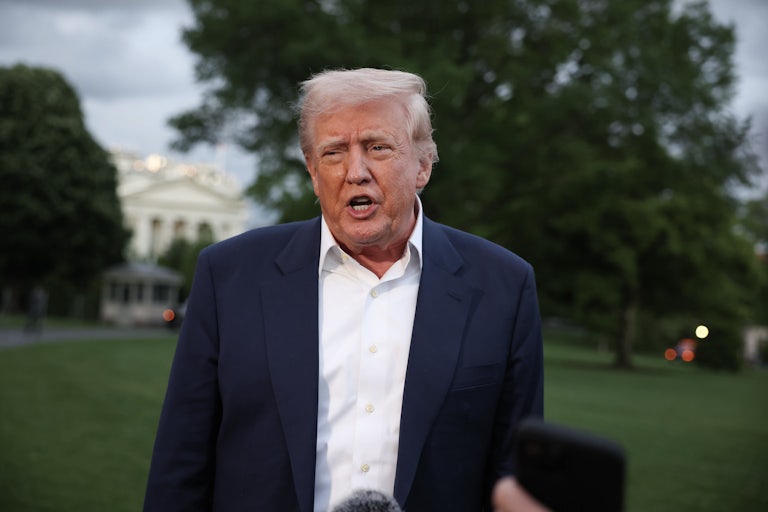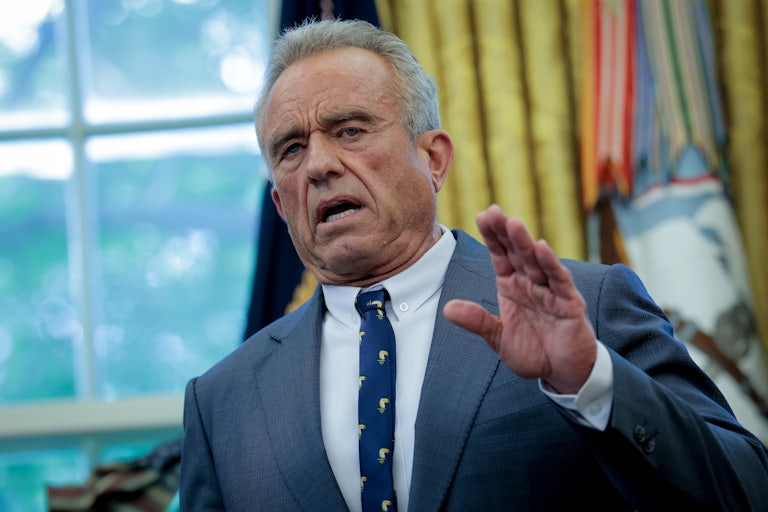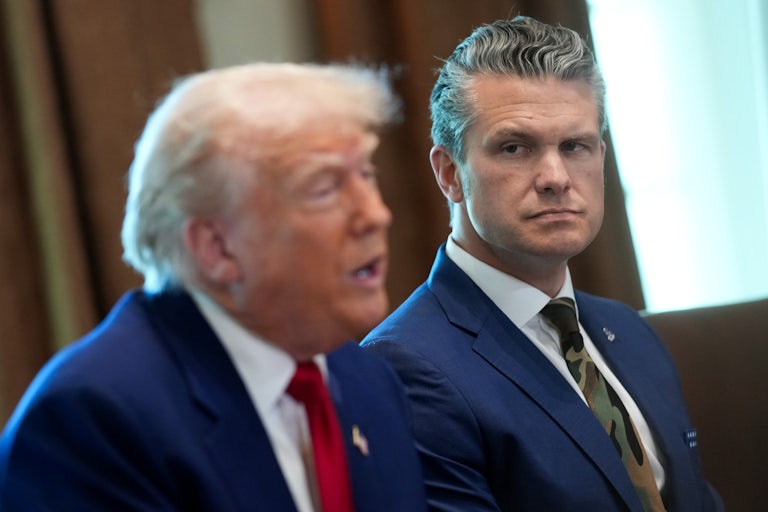Why MTG’s Own Party Is Terrified of Her Next Move
Marjorie Taylor Greene’s own party is terrified she might run for Senate.
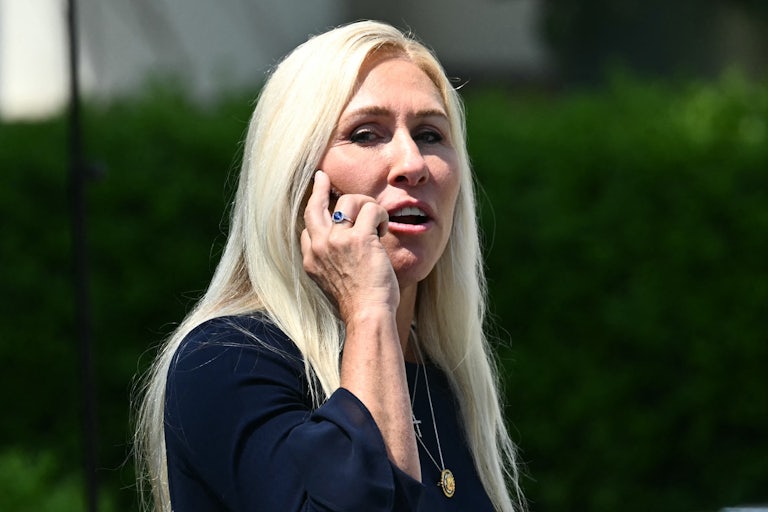
At least one thing has Republicans in D.C. on edge: Representative Marjorie Taylor Greene’s quest for power.
Now that Governor Brian Kemp is officially out of the race, the fervent MAGA acolyte is rumored to be one of a dozen conservatives considering a run for a Georgia Senate seat.
But moving Greene to the upper chamber isn’t the concern—instead, Republicans worry that her conspiratorial, shock-and-awe style isn’t enough to win over Georgia voters beyond her district, believing that a Greene run could “alienate independent voters and disillusioned Republicans,” the Atlanta Journal-Constitution reported Tuesday.
In a hypothetical matchup conducted by the paper, Senator Jon Ossoff led Greene by double digits, crushing her with a 17-point lead. That’s in large part thanks to Greene’s lack of popularity with independents in the state, according to AJC. Just 25 percent of independents in the mock poll backed a Greene Senate bid—a significant drop from Kemp’s 46 percent favorability with the same bloc.
Conservatives had flagged Kemp as the party’s best bet to snag what is believed to be the Democrats’ most vulnerable Senate seat. Instead, his exit announcement has given Ossoff—and the Democratic Party—a remarkable lift.
“It’s possible that Greene could win a Republican primary,” Republican consultant Mark Rountree told AJC. “But it’s unlikely she could win a general election, and conservatives would once again have blown an opportunity to defeat Democrats in Georgia.”
If the Jewish space lasers conspiracy theorist does decide to run, her platform would likely be nearly identical to Donald Trump’s. On Monday, Greene lamented that conservatives in both chambers weren’t completely on board with Trump’s plan, and that party members should simply “stick with the agenda” and “ignore the people” trying to do something different.
But nothing is set in stone right now.
“The polling shows that I can win the governor’s primary or the Senate primary or continue to represent my district,” Greene said to NewsNation Monday about a prospective bid. “That’s a choice that I can make. And I’ll give it some thought.”
